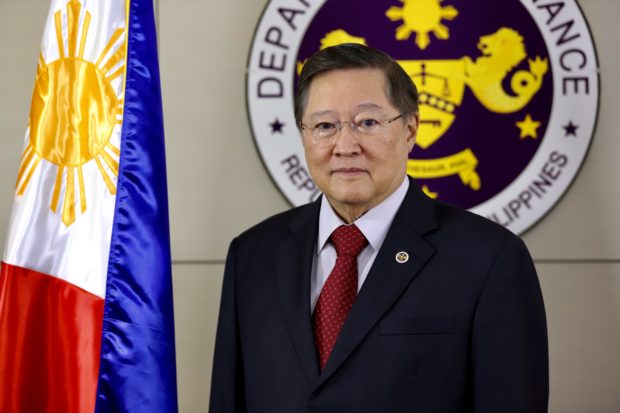Nursing the Philippine economy back to fiscal health will entail the next administration pursuing additional tax reforms to raise more revenues, Finance Secretary Carlos Dominguez III said.
Speaking to foreign business chambers on Friday, Dominguez, as President Duterte’s chief economic manager, reiterated the incumbent’s commitment to help the next president who will win the May 2022 elections address the economic and fiscal risks wrought by the COVID-19 pandemic.
“The Department of Finance (DOF) is now preparing a transition plan. And among our recommendations will be a roadmap for fiscal consolidation,” Dominguez said. The DOF wanted to narrow the ballooning budget deficit and public debt, which piled up as the government spent and borrowed more to fight COVID-19.
Proposals readied“Whoever wins the upcoming elections will need a solid tax reform program, and we are working to ensure that the next administration has what it needs to pursue that program,” Dominguez said.
This will be similar to the tax reform proposals turned over by former President Benigno Aquino III’s finance chief Cesar Purisima to Dominguez in 2016. From these, the Duterte administration created its own comprehensive tax reform program, of which measures to address inequity in personal income taxation, fiscal incentives rationalization, additional “sin” taxes, as well as tax amnesties were already passed into law.Still pending in Congress were DOF-proposed bills to improve property valuation and capital market taxation. Legislators had also pitched a new mining fiscal regime plus levies to be slapped on digital transactions and platforms, which flourished amid the prolonged pandemic.
Untaxed sectorsWhile Dominguez had pledged to no longer impose new or higher taxes until the end of this current administration, in consideration of these pandemic-induced harder times, DOF officials had said the next administration could set its sights on “relatively untaxed sectors.”
The viability of carbon tax, a levy on cryptocurrencies, as well as further hikes of excise taxes on cigarettes, e-cigarettes, alcoholic drinks and sugary beverages were also being studied and considered.Dominguez said fiscal consolidation during the next administration will allow a return to the prepandemic budget deficit level, equivalent to about 3 percent of gross domestic product (GDP), beyond 2024.
“The country’s fiscal position is projected to improve by 2022 onwards, as the economy reopens further in step with our massive vaccination program,” Dominguez said, citing estimates that tax and nontax revenue collection next year would already exceed 2019 levels. INQ
